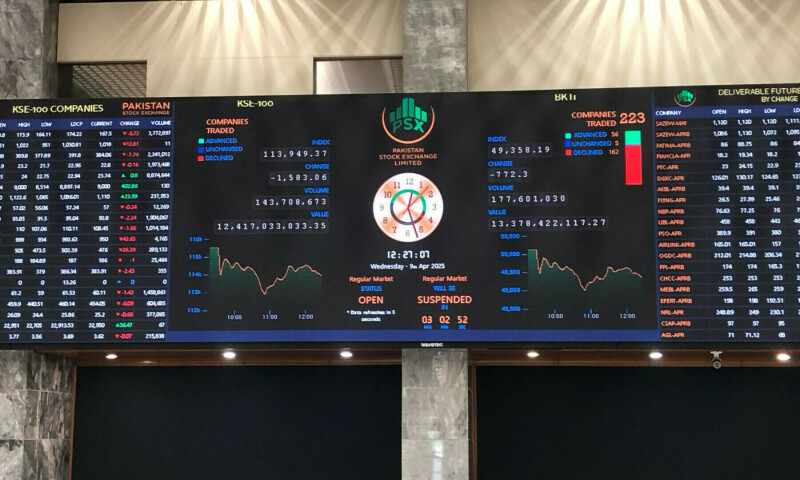The Pakistan Stock Exchange (PSX) continued last week’s renewed momentum and crossed the 120,000-point barrier to reach a record high during intraday trade on Monday before losing its gains to settle a little below.
The benchmark KSE-100 index climbed 636.4 points, or 0.53 per cent, to stand at 120,285.54 points from the previous close of 119,649.14 points at 9:33am.
However, it witnessed fluctuation, dropping to 119,426.44 points at 11:44am, 222.70 points lower than the last close.
The market subsequently closed at 119,689.63 points, 40.49 points higher, or 0.03pc.
After the Pakistan-India ceasefire relieved investors’ worries, the PSX recorded a historic rebound last week as the KSE-100 Index gained 12,474 points to settle at 119,649 on Friday.
The bullish momentum in recent days has been further supported by the International Monetary Fund’s (IMF) approval of the first review of Pakistan’s loan programme and a climate fund, as well as the disbursement of a $1 billion tranche.
Yousuf M. Farooq, director of research at Chase Securities, said the market was “consolidating ahead of the budget as participants evaluate the IMF review report”. The federal budget is expected on June 2.
He advised retail investors to “look past short-term market fluctuations and instead focus on spending less than they earn while consistently investing small amounts each month in line with their risk appetite and long-term goals”.
Awais Ashraf, research director at AKD Securities, also noted that the IMF’s “recognition of Pakistan’s achievement in meeting all quantitative performance criteria and most indicative targets is likely to be viewed positively”.
However, he stated, “Investors remain cautious about the IMF’s push for a higher revenue target for the upcoming fiscal year, which the Federal Board of Revenue is also confident of.
“A strong external position, supported by a current account surplus and easing inflation, is expected to revive economic activity and create room for further monetary easing. This should enhance the appeal of equities relative to fixed-income instruments,” Ashraf pointed out.
Analysts forecast that the KSE-100 Index could reach 165,215 points by December 2025, supported by robust corporate earnings, consistent return on equity in banking stocks, and improved cash flows in the exploration and production and oil marketing sectors.
Falling interest rates and greater macroeconomic stability are also expected to provide tailwinds.


